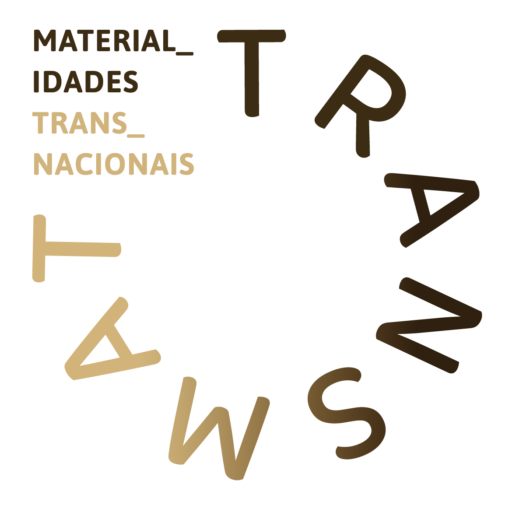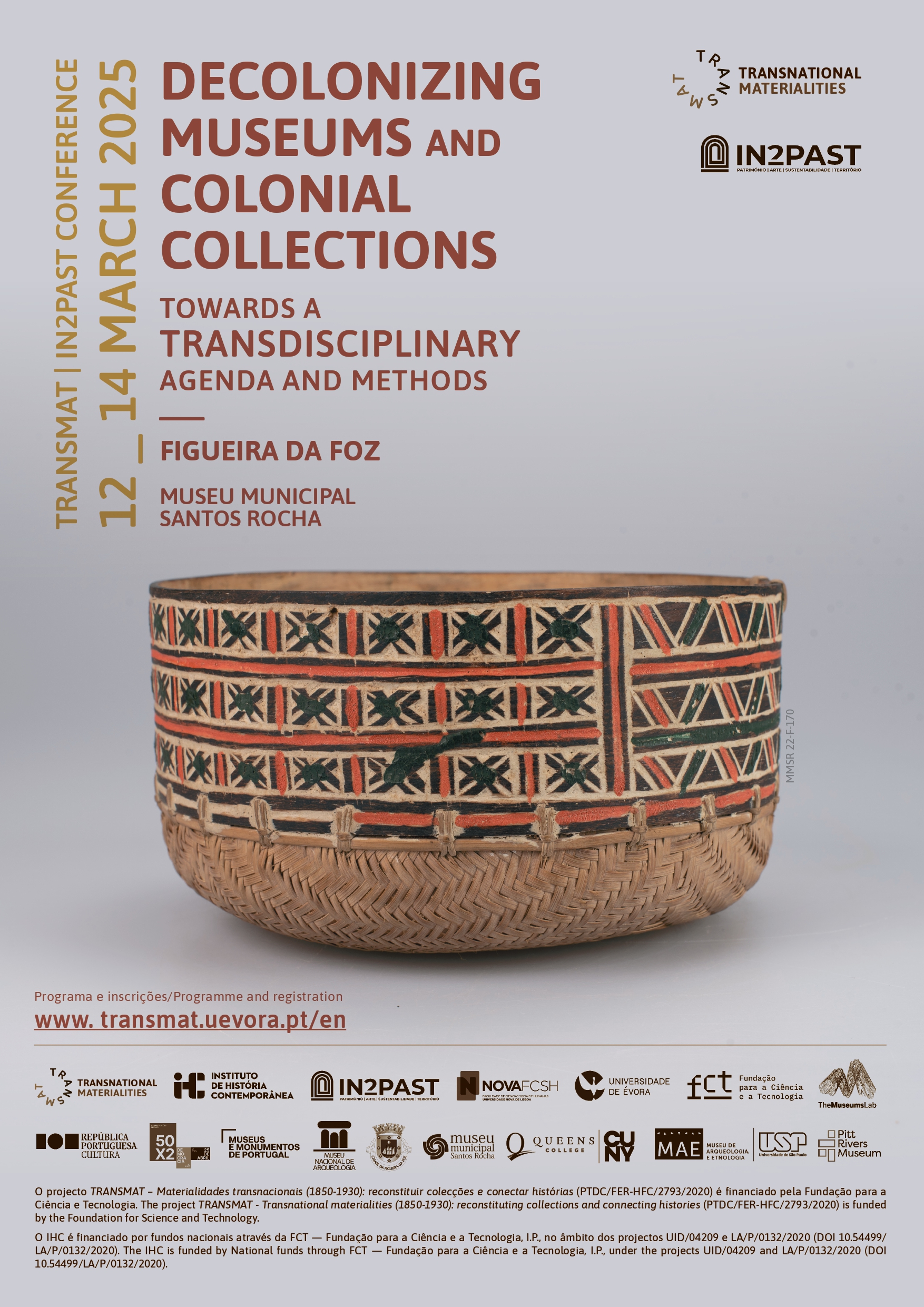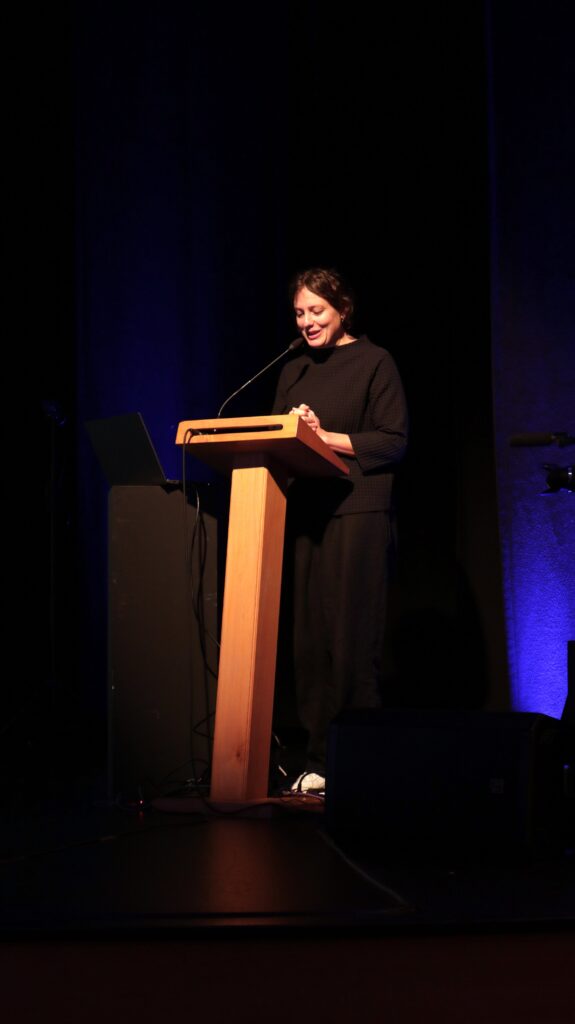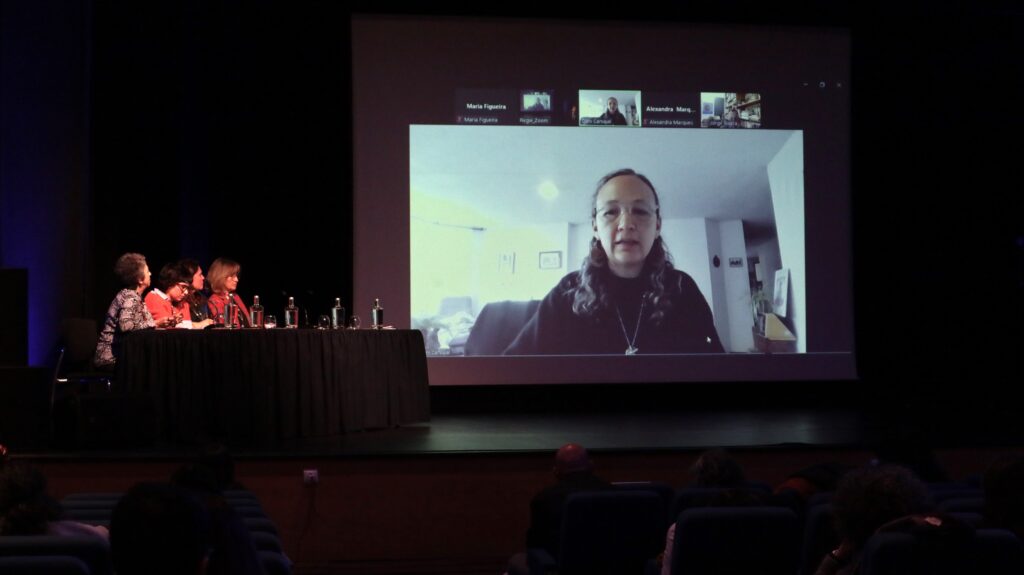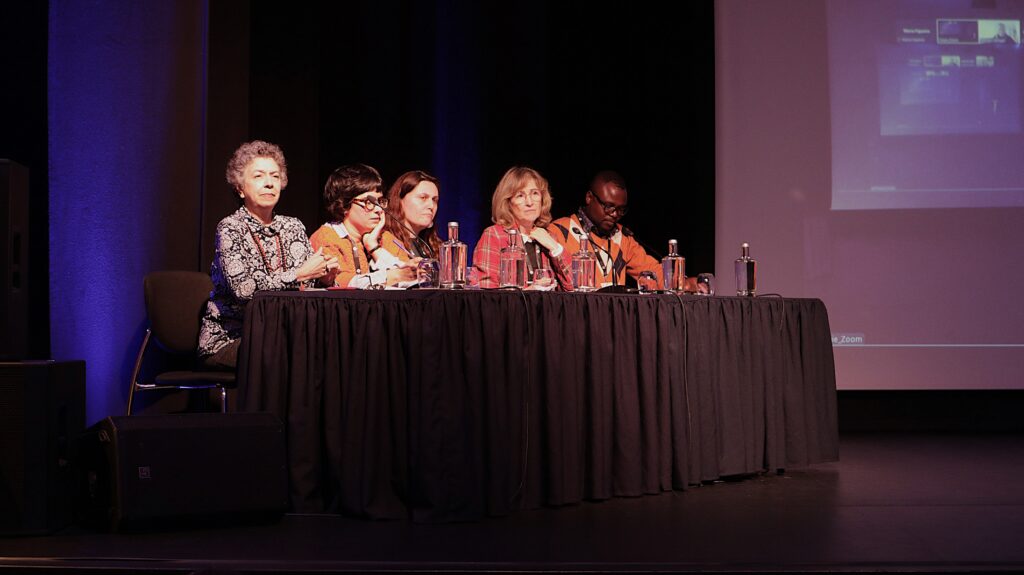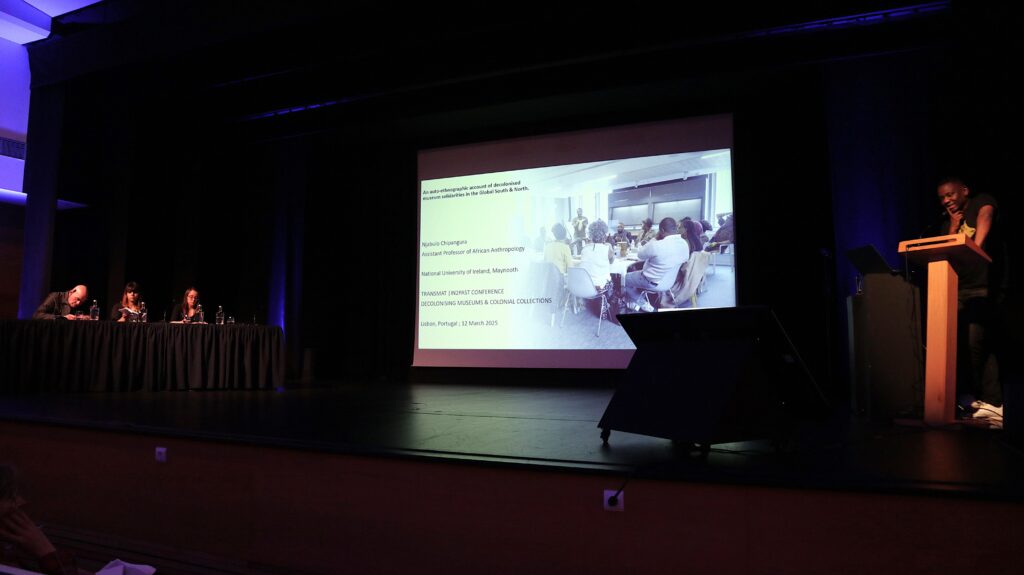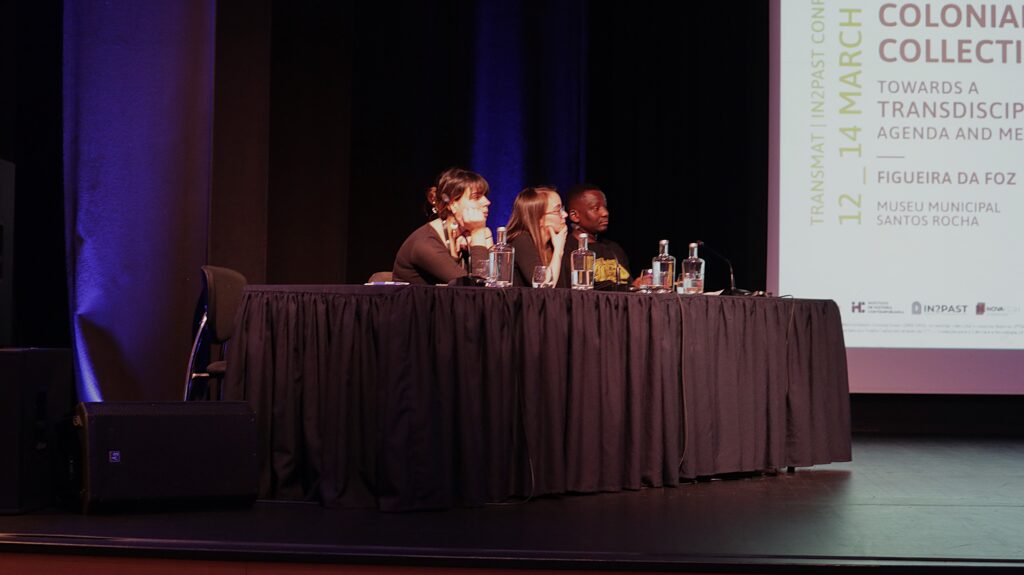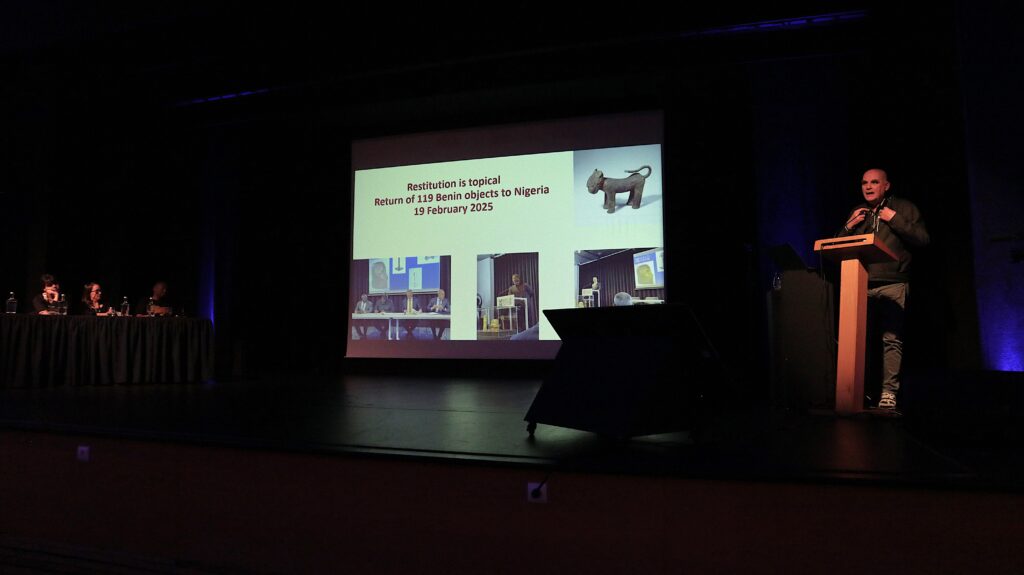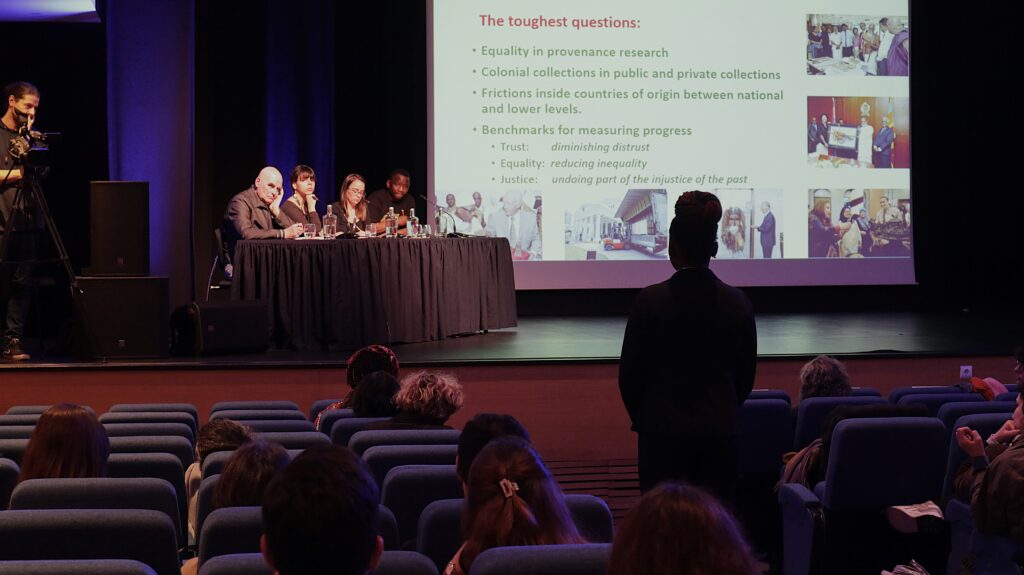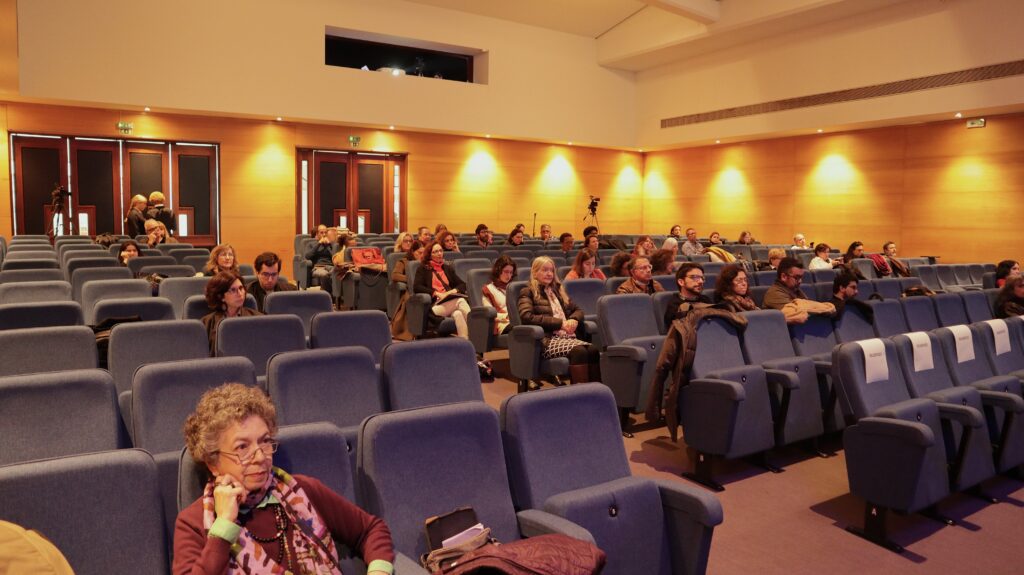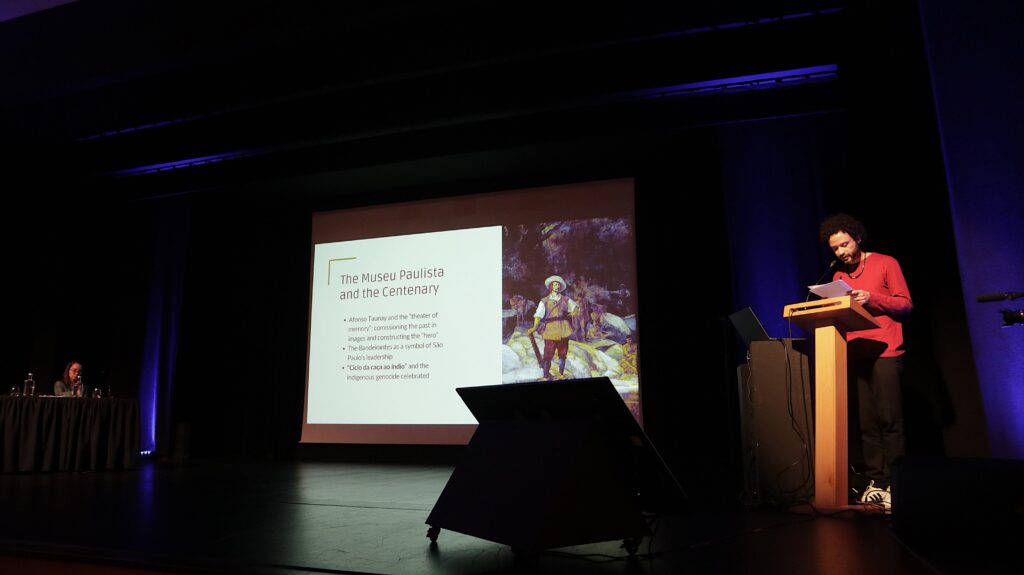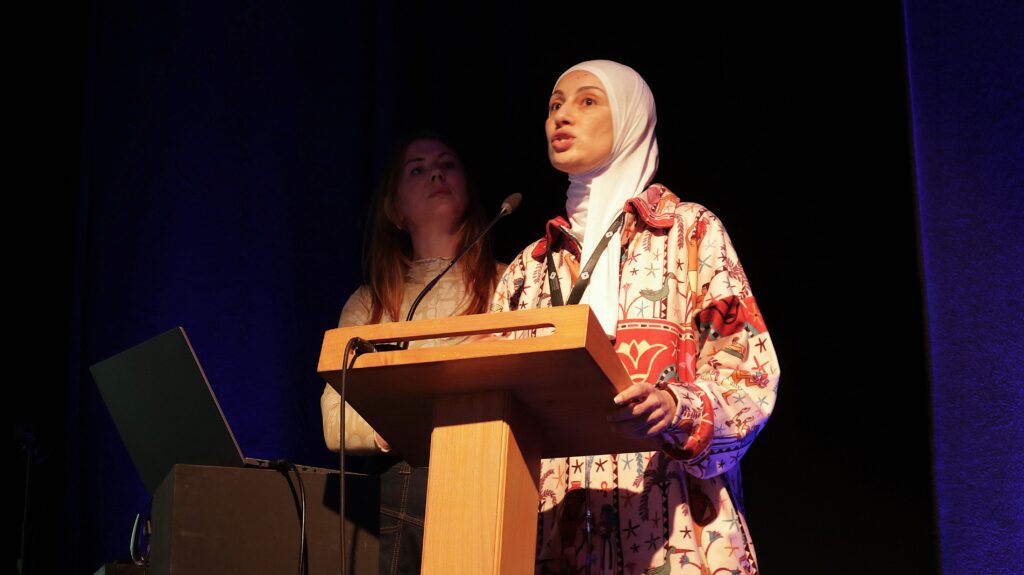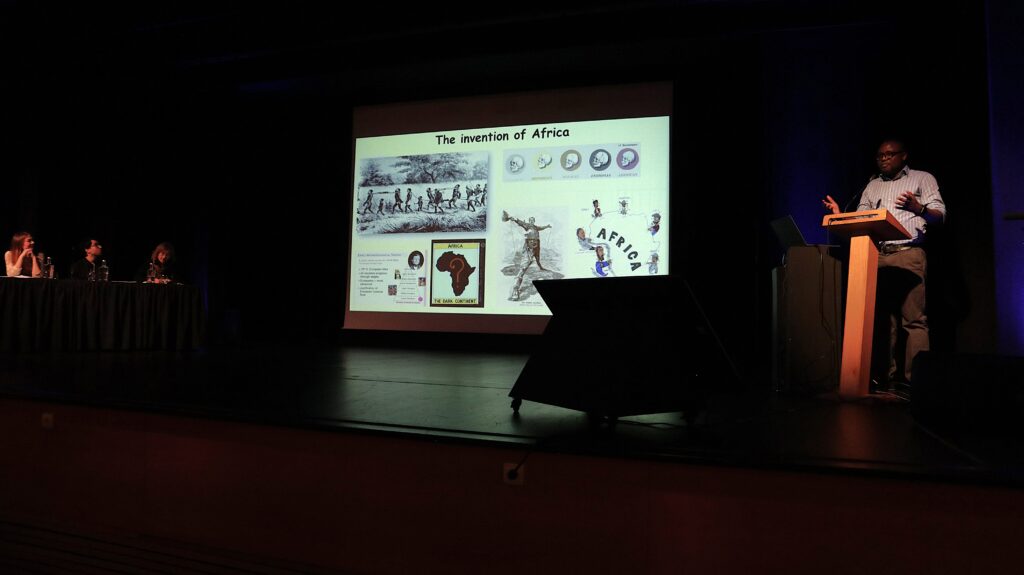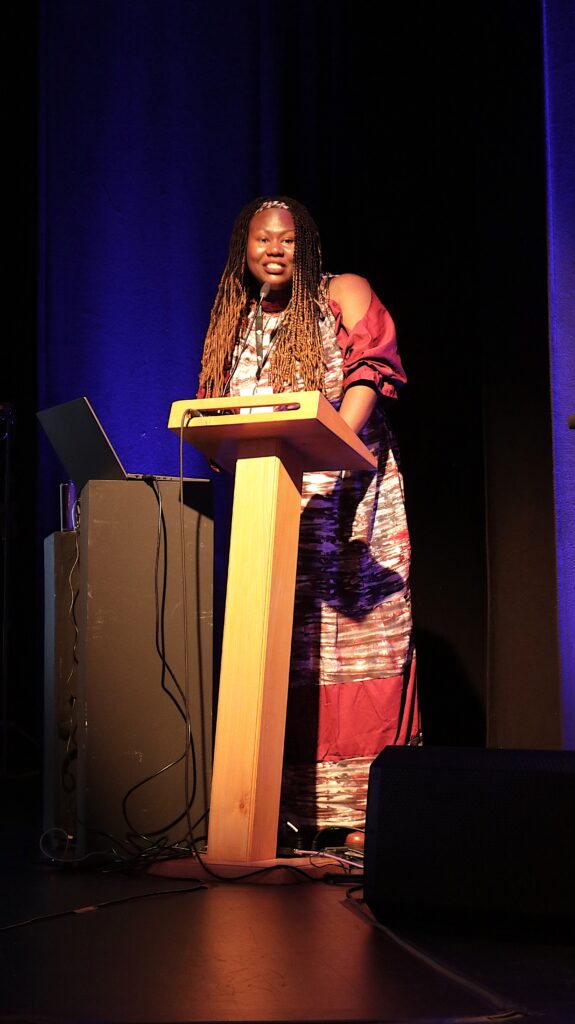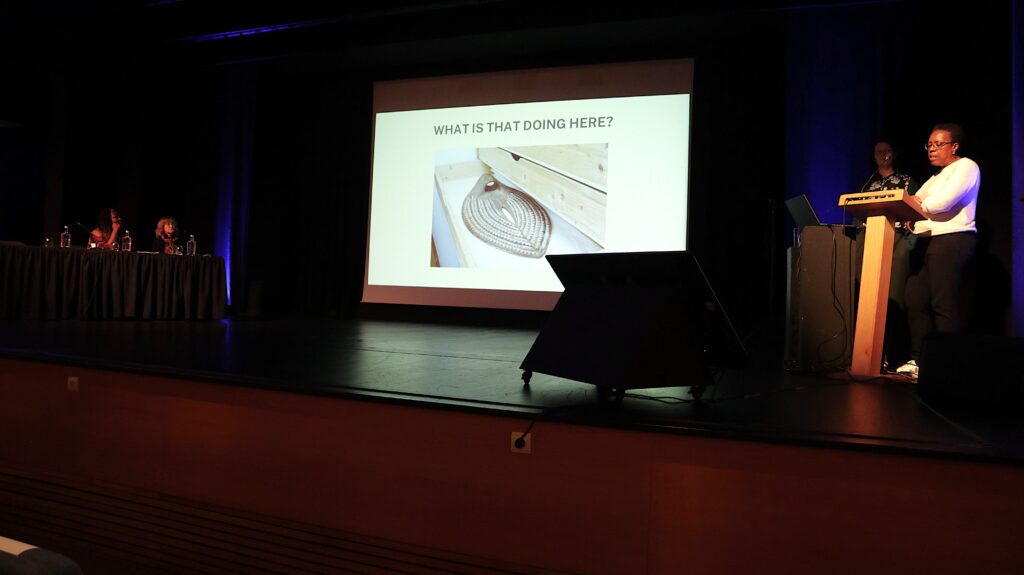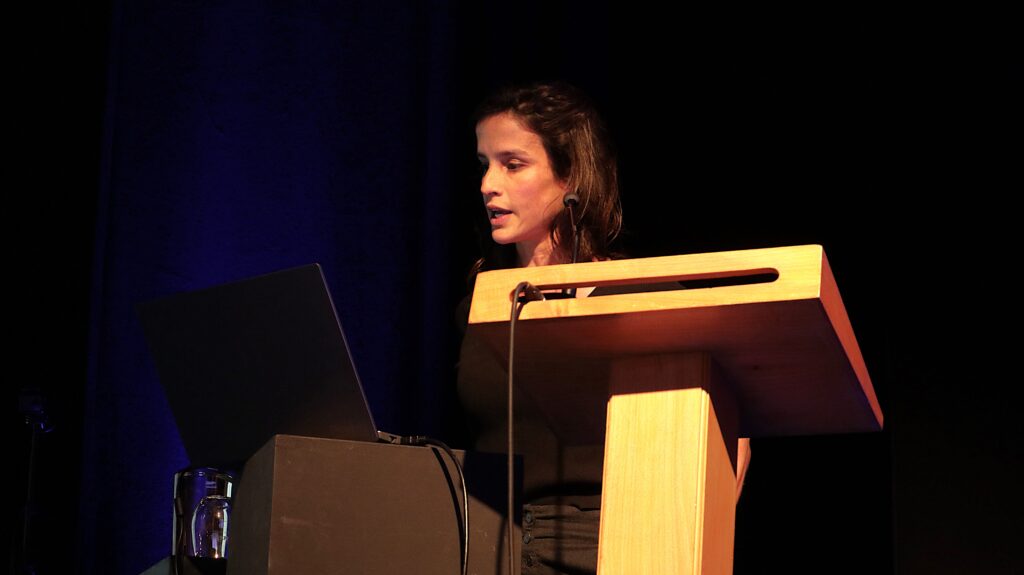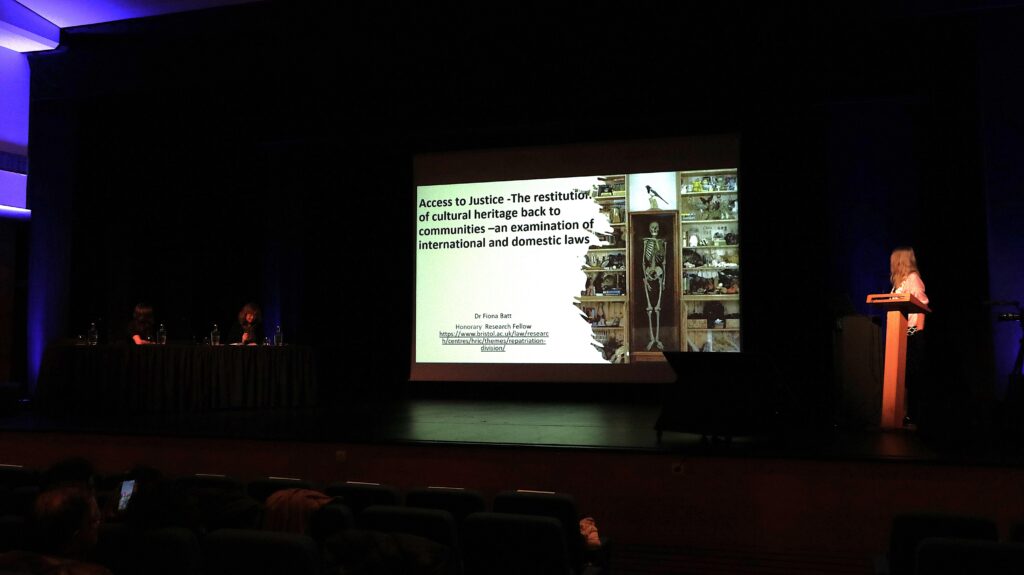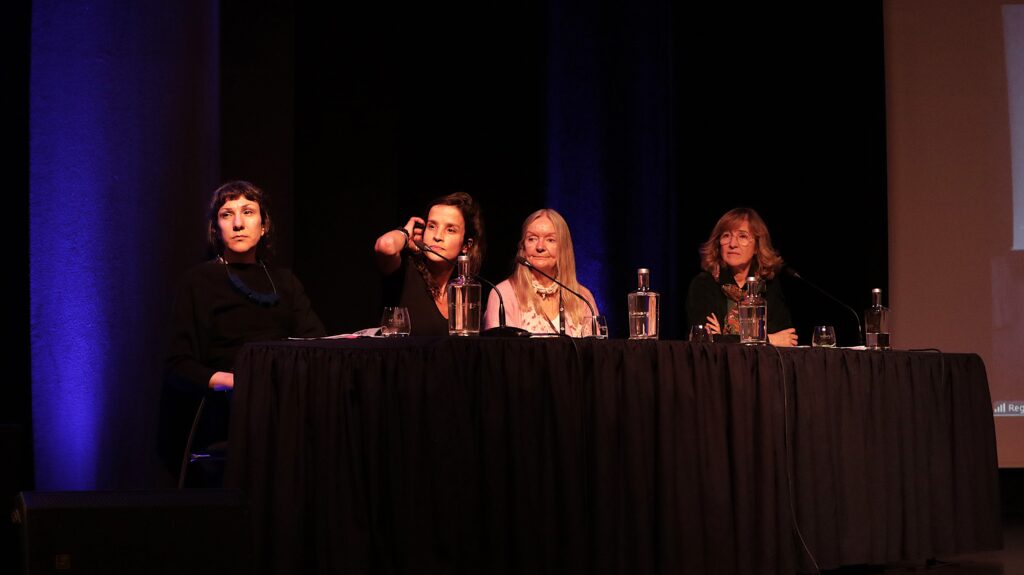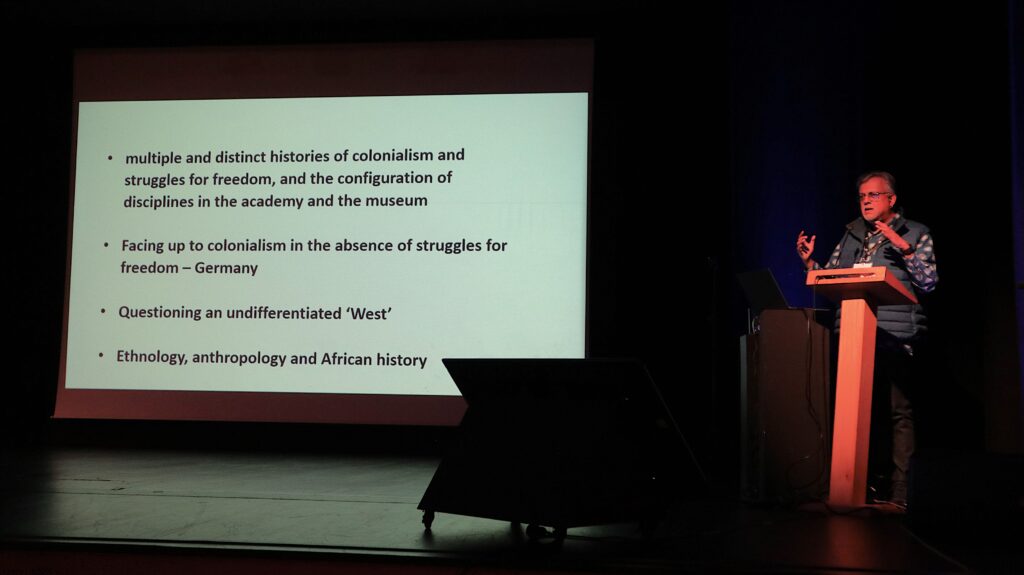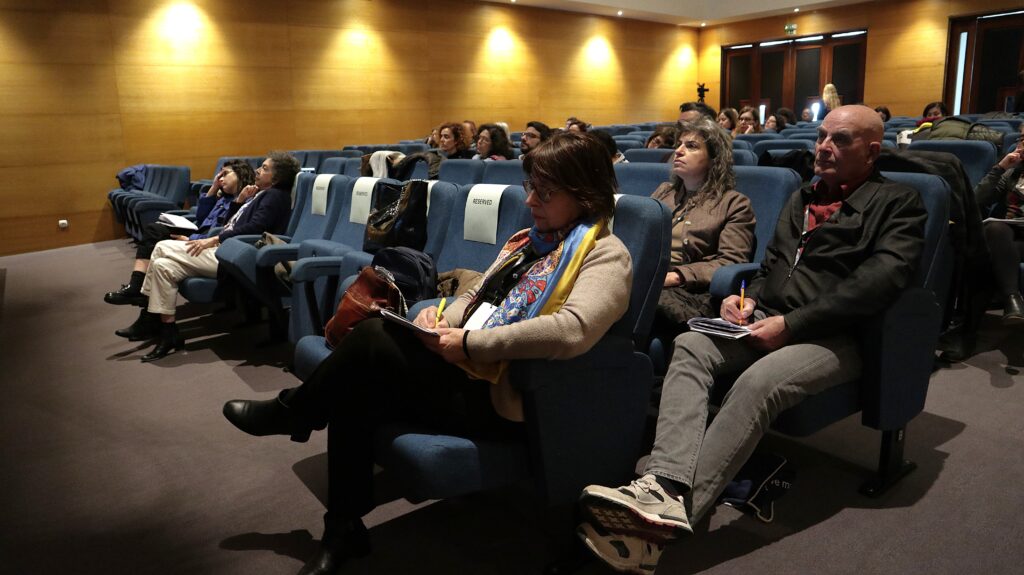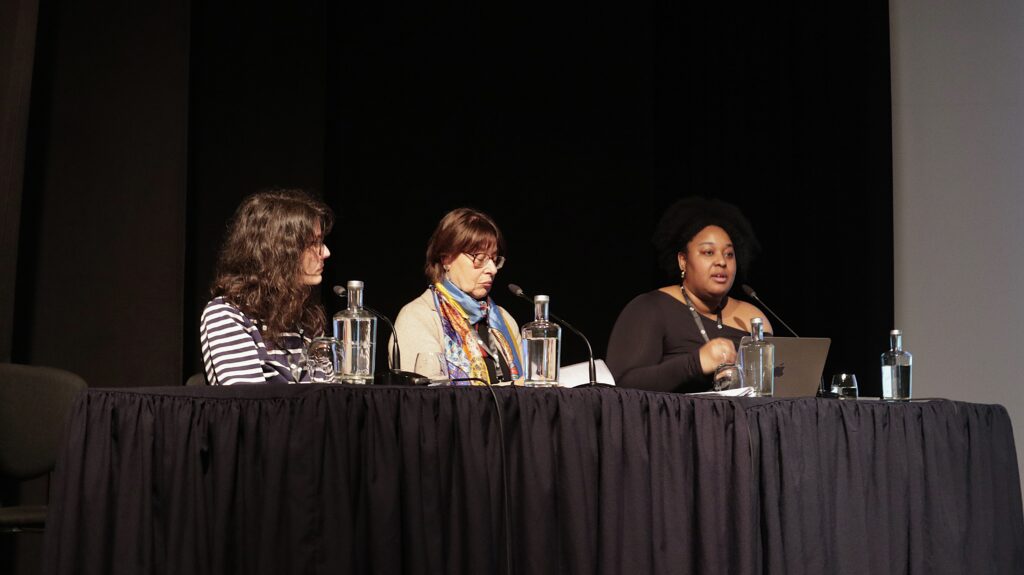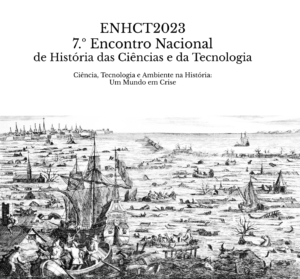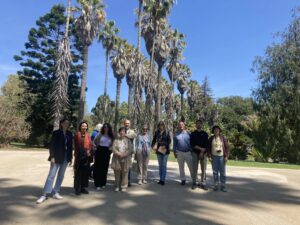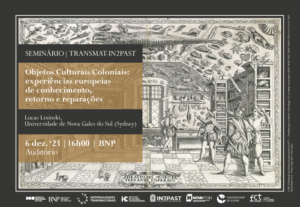
The international conference “Decolonizing Museums and Colonial Collections: Towards a Transdisciplinary Agenda and Methods,” held in March 2025 in Figueira da Foz, was marked by remarkable geographical representation and rich thematic debates. The event brought together speakers and participants from four continents—Europe, Africa, South America, and North America—reflecting the truly global and inclusive nature of the discussion on the decolonization of museums and colonial collections.
Among the countries represented were Portugal, Brazil, Germany, the Netherlands, the United Kingdom, Uganda, Angola, Ecuador, the United States, Canada, South Africa, Cameroon, Peru, and Kenya. This geographical diversity translated into a multiplicity of perspectives, experiences, and challenges, enriching the dialogue and promoting a transdisciplinary and collaborative approach.
The topics covered during the three days of the conference were equally comprehensive and innovative. The sessions explored central issues such as provenance research and the circulation of objects, the restitution and repatriation of heritage, and possible processes of historical reparation. Debates on power dynamics and colonial continuities, the need to rewrite museum narratives, and the importance of including the voices and knowledge of communities of origin stood out.
Case studies were presented that analyzed everything from the role of national museums in postcolonial contexts (such as the National Museum of Anthropology of Angola) to experiences of co-creation and community mediation in museums in Latin America, such as the co-creation scholarship project in Quito, Ecuador. There were also reflections on heritage education, memory and historical oblivion, and the role of public policies in the implementation of cultural restitution and repatriation in African countries.
The conference also highlighted the importance of collaborative methodologies and action research, promoting the sharing of innovative practices between European and African museums, and encouraging the development of new forms of solidarity, shared curatorship, and inclusion. The ethical and logistical challenges of restitution, the reclassification of objects, and the critical review of collections were discussed, as well as the tensions between official discourses and silenced memories.
By bringing together researchers, curators, community leaders, and policymakers from various backgrounds, the conference established itself as a privileged space for building common agendas and defining transdisciplinary methods capable of responding to the contemporary challenges of museum decolonization. The event reaffirmed the urgency of rethinking the role of cultural institutions in promoting historical justice, diversity, and inclusion, pointing the way toward a more ethical and pluralistic future for museums.
